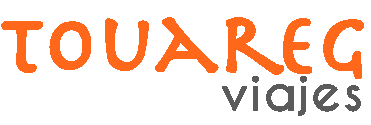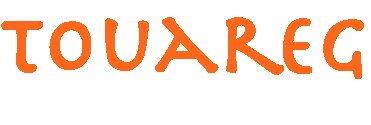how does rational choice theory explain green collar crimes
Respond to the following 1. This indicates since these activities are done in any means necessary as Messner mentions, this only results in the hypothesis that criminal activities are done from need, this can be either for the peoples. Trait Theory in Criminology: Overview & Social Influence | What is Trait Theory? Individuals must anticipate the outcomes of alternative courses of action and calculate which action will be best for them. Self-Report Crime Surveys Method & Strengths | What are Self-Report Studies? Occupational Crime Law & Examples | What is Occupational Crime? He moved drug money through his business from the gangs in a way that cleaned the money. His law enforcement experience includes the military, local, state, and federal levels as a police officer and criminal investigator. Chris is confused about something. Edited by Dominic Rohner and Ekaterina Zhuravskaya. Danny owns a fish market in Seattle. All other trademarks and copyrights are the property of their respective owners. A white collar crime is committed to make profits, they are not the acts of madmen or irrational people. Further, the book includes chapters that empirically evaluate offenders decision-making processes for a variety of offenses, such as shoplifting and robbery. It lacks explanatory power in certain crimes. Oxford Bibliographies Online is available by subscription and perpetual access to institutions. Once Danny and Richard are labeled as offenders, they engage in criminal behavior and act accordingly. The penalties for green-collar crime vary from none to hundreds of millions of dollar and really depend on the crime itself, if it is truly illegal, if it is caught, and how well the laws against it can be enforced. Crossman, Ashley. It's 2020. The rational choice theory has sprung from older and more experimental collections of hypotheses surrounding . It helped me pass my exam and the test questions are very similar to the practice quizzes on Study.com. 83 lessons. Social control is enforced by agencies such as police and the courts, more specifically defined than deviance. CJ102: Criminology I Unit 6 Assignment Worksheet 5. On the other hand, especially when the green-collar crime involves a human component, the punishment can be quite appropriate. Viewing themselves as a good person is the third, which is basically being a bully to everyone around them. An error occurred trying to load this video. Rational choice theory is an economic principle that states that individuals always make prudent and logical decisions. When green-collar crimes occur and the perpetrators are caught, the punishments tend to be rather light compared to other forms of crime. The Uniform Crime Report also relies on voluntary participants. Still others believe that people take a rational approach, weighing the pros and cons of a crime and acting logically. Criminal Justice 104: Introduction to Criminology, Psychological Research & Experimental Design, All Teacher Certification Test Prep Courses, Crime Categories, Characteristics & Elements, Measuring Crime through Criminal Justice Research, Rational Choice & Trait Theories in Criminology, Social Structure & Social Process Theories in Criminology, Social Conflict Theories & Restorative Justice, What Is White Collar Crime? White collar crime has been taking place in America for a long time and is summed up as lying, cheating and stealing. copyright 2003-2023 Study.com. Messner says that money is special and is high priority in the American culture and also implies that the Americans are materialistic (70). Step 4: Generate Alternatives. All rights reserved. There are different approaches to criminology. Marin had intentionally wanted to commit insurance fraud by collecting the fire insurance payout for his burned home. Janice asks Mary to wallpaper her house in anticipation of the home improvement, and requests. It makes use of different theories and school of thought in order to analyse the reasons behind criminal activities. The offender just acts or reacts to a given opportunity but this is still premeditation in their intent to make a choice and act upon this decision knowing if they are caught there will be legal consequences; however, the gain outweighs the risk. Try refreshing the page, or contact customer support. However, some contend that the cost of such massive pollution is not mitigated even by these very large fines. Thus, they won't be punished, period. The rational choice theory is an important concept in criminology since it describes how individuals or the state make decisions, which is taken mostly from the expected utility model in economics . Corrections? Clarke and Felson 1993 includes a series of essays that apply rational choice to different types of crimes, and that discuss the integration of rational choice with other theories. now, with regards to white collar crimes, if an individual wants to engage in corruption or embezzlement of funds, he or she will consider the amount of funds to be . 135 lessons Green-collar crime also includes pollution. The second view maintains that rational actors exhibit purposive action consistent with the behavioral norms of rational choice. First, we learned that the Theory of Differential Association was one of the first theories of criminology. LinkedIn and 3rd parties use essential and non-essential cookies to provide, secure, analyze and improve our Services, and (except on the iOS app) to show you relevant ads (including professional and job ads) on and off LinkedIn. The theory they explored was referred to as high- and low- cost theory. Working from the classical school of criminology and the theoretical framework of utilitarianism Jeremy Bentham discuss the concept of calculus of pleasure or hedonistic calculus. Labeling Theory was originally defined in Suicide, a book by French sociologist mile Durkheim, published in 1897. Criminal Justice 101: Intro to Criminal Justice, The Crime Control & Due Process Models of Criminology, Psychological Research & Experimental Design, All Teacher Certification Test Prep Courses, The Classical School of Criminology & Its Influence Today, The Rational Choice Theory of Criminology, Biological Theories of Crime: Overview & Features, Individual Trait Theory of Criminology: Factors & Biases, Psychological Theories of Crime: Assumptions & Weaknesses, Sociological Theories of Crime: Overview & Features, The Chicago School's Social Disorganization Theory, Labeling Theory and Crime: Stigma & Retrospective and Projective Labeling, Victims & Victimization in Criminal Justice, The Criminal Trial in the U.S. Justice System, The Sentencing Process in Criminal Justice, Praxis Core Academic Skills for Educators: Reading (5713) Prep, Praxis Core Academic Skills for Educators - Writing (5723): Study Guide & Practice, ILTS TAP - Test of Academic Proficiency (400): Practice & Study Guide, FTCE General Knowledge Test (GK) (082) Prep, Praxis Chemistry: Content Knowledge (5245) Prep, Praxis Social Studies: Content Knowledge (5081) Prep, DSST Human Cultural Geography: Study Guide & Test Prep, Introduction to Human Geography: Certificate Program, NY Regents Exam - US History and Government: Help and Review, Praxis Family and Consumer Sciences (5122) Prep, Sociology 103: Foundations of Gerontology, Practical Application: Measuring the Extent of Victimization, Personal Crimes: Types, Motivations & Effects, Explanations for Personal Crimes: Victim Precipitation & Situated Transactions, Hate Crimes: Motivations & Effects on the Community, Assault & Robbery: Extent, Impacts & Motivations, Family Violence: Immediate Consequences & Long-Term Impacts, Victimization in Schools: Explanation & Trends, Victimization in the Workplace: Explanation & Trends, The War on Drugs: History, Statistics & Facts, Working Scholars Bringing Tuition-Free College to the Community, Describe what is meant by rational choice theory when it comes to criminology, Detail the logic behind the hedonistic calculus, Understand that there are pros and cons to the theory. Rational choice theory has been central to methodological debates throughout the social sciences because of its adherence to a limited view of human rationality as consistency among preferences that categorically deems irrational modes of conduct not reducible to this description. Rational choice theory was pioneered by sociologist . But as an overarching view of crime, it works pretty well. Situational Crime Prevention Theory, Elements & Examples | What is SCP? Implications of Choice Theory on Social Policy & Crime, Crime Measurement Programs: History & Nature, Social Process in Criminological Theories | Differential Association, Social Learning, Naturalization & Labeling Theories. Fourth, this paper will engage in its own critique of both Hayward 's and Farrell 's work and conclude with which article makes the most compelling argument. When referring to rational choice theory, then, we mean rational choice/deterrence theory. Criminology is the study of crime and punishment. "Rational Choice Theory." The work of Danny and Richard gives them the access to easily commit white collar crimes. This book also contains chapters that describe how rational choice can be applied to a number of criminal behaviors, such as organized crime, corporate crime, and violent behavior. The offender on a daily basis will observe a certain type of white collar crime taking place in his workplace and during the daily or routine interaction with his colleague who is carrying on the crime, will learn how to commit the same type of white collar crime. Provides numerous examples of how peoples decisions are often more irrational than rational. All other trademarks and copyrights are the property of their respective owners. Second, this paper will examine Hayward 's discussion of RCT, SCP, and cultural criminology. In particular, there is a chapter on Cornish and Clarkes rational choice model, while other chapters discuss theoretical issues regarding rational choice theory. Nation Building. Rational choice theory and its assumptions about human behavior have been integrated into numerous criminological theories and criminal justice interventions. This demonstrates that they would do anything for cash, including illegal activities. Rational choice theory implies that criminals are rational in their decision-making, and despite the consequences, that the benefits of committing the crime outweigh the punishment. Even though the first view is more restrained and is sufficient for applying rational choice methods to understanding social and political phenomena, many researchers hold the view that rational choice theory is a powerful analytic tool precisely because it reflects the actual principles that must characterize purposive agency. social goals of contemporary criminal law. https://www.britannica.com/topic/rational-choice-theory, University of Regina - Rational Choice Theory. First, people in society have free will to choose criminal or conventional solutions to meet their needs or settle their problems (Siegel 92). In rational choice theory, agents are described by their unchanging sets of preferences over all conceivable global outcomes. The foundation of rational choice theory is behavioral choices, that includes the choice of the person to engage in criminal activity based on intent/premedication and that the possible benefits outweigh the risk. For example, Danny's crimes primarily affect customers, while Richards's crimes primarily affect taxpayers. Criminology, 30, 47-88. rational choice theory, also called rational action theory or choice theory, school of thought based on the assumption that individuals choose a course of action that is most in line with their personal preferences. Offenders make a choice with free will after weighing the options, and then act accordingly if the benefits outweigh the chance. He and the other owners of the fish companies get together once a month and set their prices for the month. Some examples of green-collar crime are apparent to all of us and are in the news more often than others. White-collar crime could refer to something like embezzlement, while blue-collar crime may include burglary. In addition, there are chapters that apply rational choice to a host of antisocial behaviors at a theoretical, empirical, and practical level. At its core, Rational Choice Theory is a system of axioms that give a basis for predicting how individuals will make decisions. There are numerous types of white collar crimes such as bribery, bank fraud, embezzlement, and insurance fraud to name a few (National Check Fraud Center, 2011). They write new content and verify and edit content received from contributors. The American Dream has promoting fame and fortune, therefore, the citizens of the middle and working class are being lured into criminal activities in order to become rich, to become one of the people who has achieved the dream. This is called methodological individualism, which holds that the elementary unit of social life is individual human action. Explain the social goals of, Experiment is Gas Laws. If the animals are released, they may threaten the survival of local native species. Related to the first problem just discussed, the second problem with rational choice theory, according to its critics, has to do with social norms. It does not take a long time for an offender to plan or think about a crime of opportunity. The General Theory of Crime is also known as the Self-Control Theory of Crime. (Siegel, 2016). There are micro level criminological theories, which look at behaviors within individuals, This theory is vital to contemporary political science in addition to other chastisements for instance sociology and philosophy. Further, it does not apply well to juvenile or mentally ill offenders. But there are some drawbacks to the rational choice theory. That is, people are often motivated by money and the possibility of making a profit, calculating the likely costs and benefits of any action before deciding what to do. The rational choice theory offers an overarching view of crime, but it assumes that all people act rationally, does not give a complete picture of crime, and does not apply well to juvenile or mentally ill offenders. In this case "white collar crime". In criminology, this model of 'rational choice . Rational choice theory is a fundamental element of game theory, which provides a mathematical framework for analyzing individuals mutually interdependent interactions. The reasoning criminal: Rational choice perspectives on offending. As it were whether the offense is savage or robbery, it is more prone to take the manifestation of any means necessary (Messner et al, 21). Rational choice theory has its fair share of non-supports, simply because the theory suggest criminals act rational in their thinking. Dr. Loy has a Ph.D. in Resource Economics; master's degrees in economics, human resources, and safety; and has taught masters and doctorate level courses in statistics, research methods, economics, and management. A green-collar crime is a crime that is committed against the environment to gain profit. - Definition, Meaning & Examples, What Is Money Laundering? Please subscribe or login. Create your account, 21 chapters | Rational Choice Theory, created by Cesare Beccaria in 1764, explains white collar crime as a life of balancing choices and choosing the one with the most reward. 2 Another situational factor that affects criminal offending is the exposure of the . These are crimes that often require specialized knowledge, or access. 2. Copy this link, or click below to email it to a friend. UCR's also do not include drug usage and typically has reporting errors made by the officers during arrest. These decisions provide people with the greatest benefit or satisfaction . Choice theories have been influential in shaping public policies, and criminal law is designed to deter potential criminals and to fairly punish those have been caught in illegal acts. Not only does the illegal export of wildlife hurt local wildlife populations from where they are hunted, but it also poses a danger to the new ecosystem into which they are brought. Rational Choice Theory. Trait Theory in Criminology: Overview & Social Influence | What is Trait Theory? Rational choice theory is conceptually broader than many researchers believe it to be, and those who explore it often leave out important variables in their testing. But there's another collar crime: it's green-collar crime, which is a crime committed against the environment (nature). Hedonistic calculus states that people will weigh the possible pleasures from committing the crime against the possible pain from punishment, and act accordingly. This theory is vital to contemporary political science in addition to other chastisements for instance sociology and philosophy. The core of the rational choice theory can often be challenged amongst several courses of encounters, people typically do according to what they consider to result in the best inclusive outcome. It was put forth by Travis Hirschi and Michael Gottfredson in 1990. Comparison Microscope Overview & Use | What is a Comparison Microscope? And hedonistic calculus is a good example of this; it is about making a logical choice in order to seek pleasure and avoid pain as much as possible. Rational choice theory does address behaviors that are selfless, altruistic, or philanthropic.


